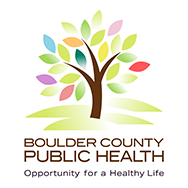Soils & Gardening After a Flood
Flood waters can carry dangerous materials and may contain bacteria. It is best to till the soil and wait 90 days between flooding and planting fruits and vegetables and/or test the soil before planting (see below). This allows time for anything that has been deposited on the soil to be exposed to sunlight, rain, air, and other conditions that reduce the likelihood that bacteria and viruses will still be present. Chemical substances in flood water were likely diluted and should be at low levels.
Soil Testing
If you don’t see signs of chemical contamination, it is likely not a concern.
Signs include:
- Staining or sheens
- Distressed vegetation
- Noticeable chemical odors
If your garden area comes in contact with flood waters or sediment or you think your planting area may contain high levels of chemicals, the only way to know for sure is to have the soil tested by a certified laboratory. This can be expensive, however, and test results can be hard to interpret. So it is best to avoid planting in those areas until you are sure it is safe.
If you do decide to test, the following Colorado labs offer relevant soil testing:
- Colorado State University Soil & Water Laboratory conducts mineral and metals testing.
- Colorado Department of Public Health & Environment Laboratory tests for chemicals, oil, volatile compounds, and mining waste.



